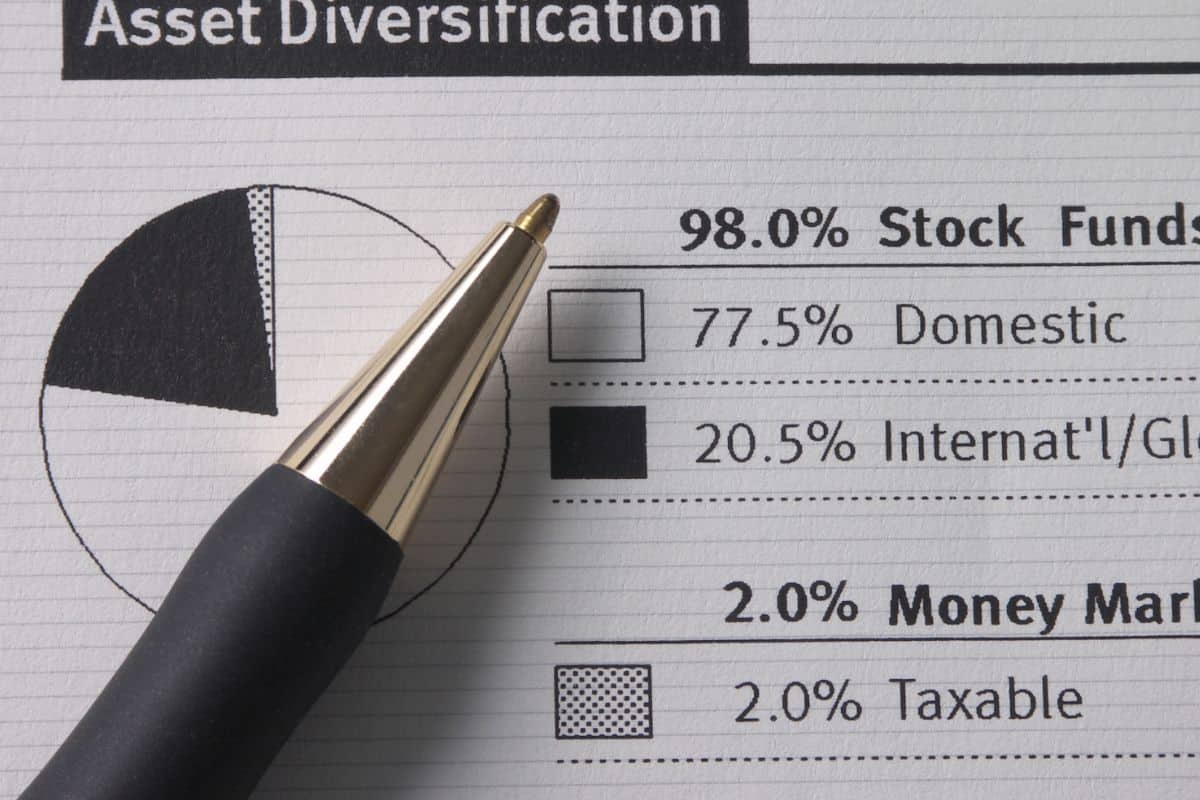Investments are important because they allow you to earn a return from your savings/invested capital.
Investments also provide financial security, and can reduce risk. An investor who has several investment options can diversify their portfolio.
Diversification means investing in several asset groups, such as stocks, bonds, real estate and commodities.
An investment is defined as something (a stock, bond, commodity, etc.) that provides a regular income stream.
When looking at investments, you should consider the potential risks and rewards.
This article will talk about investable assets and how they can help you achieve financial security.
Table of contents
What are Investable Assets?
The term “investible” refers to an asset that generates cash flow.
The most common types of investable assets are stocks, bonds, mutual funds, REITs, ETFs, life insurance policies, annuities and real estate.
Stocks
A stock is a company’s ownership share.
Stocks represent ownership interests in companies; therefore, investors purchase shares of stock for future profits.
Stock prices reflect the value of the underlying business.
Bonds
A bond is a debt obligation issued by a government, corporation or other entity.
Bonds usually pay interest annually, and may be paid back over time with principal.
They are considered long-term investments since they have fixed rates of return.
Mutual Funds
Mutual funds are pooled investment vehicles that seek to generate positive returns through various securities holdings.
These funds are professionally managed, which allows them to hold different kinds of securities than individual investors can afford.
Real Estate
Owning real estate involves purchasing property and managing it. Real estate can be owned individually or jointly with others.
A single family home might cost $100,000 while an apartment building could run into millions.
Life Insurance Policies
A life insurance policy pays benefits when the insured dies.
Life insurance policies come in many forms, including whole life, universal life, variable life, indexed universal life and variable annuity.
Annuities
An annuity is a contract between an insurer and an individual or group of individuals. Annuities give a steady source of income for life.
Commodity Investments
Commodities are goods produced by nature. Commodities include oil, gold, silver, wheat, coffee, cocoa, sugar, cotton, corn, soybeans, and pork bellies.
ETFs
An exchange traded fund is a type of mutual fund that tracks an index or benchmark. It trades like any other stock on an exchange.
REITs
A real estate investment trust is a publicly held company that invests primarily in commercial real estate.
REITs focus on owning properties, not just collecting rent.
Investment Risk

When choosing an investment, there are two main things to consider: risk and reward.
The higher the risk, the greater the potential return. However, the lower the risk, the less likely you are to lose money.
Risk
There are three ways to measure risk.
- Volatility – this measures the degree of movement in an investment’s price. High volatility means more fluctuations in price.
- Correlation – this shows whether two investments move together or independently. If two investments move in opposite directions, then their correlation is negative.
- Beta – this measures the extent to which an investment moves in relation to the market as a whole. An investment with high beta will move much more than the overall market.
Reward
The higher the expected return, the better. But remember, risk comes along with reward.
So if an investment promises a 10% annual return but has a 30% chance of losing half its value, you should probably pass.
Expected Return
The average rate of return on all types of investments. This is calculated using historical data.
For example, if you invested $10,000 at 5%, your total gain would be $5,000 after one year.
After five years, your investment would be worth $15,000. On average, stocks have historically returned about 8%.
Bonds have averaged around 3%.
Managing Investable Assets
Once you decide what kind of asset you want to own, how do you manage it? There are several options available.
You may choose to buy and sell individual stocks yourself, use a broker, hire a financial advisor or work with an online investing platform.
Buying Stocks
You can purchase individual stocks directly from a brokerage firm. Many brokers offer free research tools such as Morningstar and Value Line.
These services provide information about companies based on various factors such as earnings growth, sales and cash flow.
They also show how well a stock is performing against its industry peers. Brokers charge fees for these services.
You can also find good deals through discount brokers who specialize in trading large blocks of shares.
Discount brokers typically charge low commissions and offer no-load funds (funds without sales charges).
If you don’t want to deal with the hassle of buying individual stocks, you can open up a self-directed IRA account.
A self-directed IRA allows you to invest in any type of security.
It doesn’t require you to pay a commission and provides access to a wide variety of securities.
Using A Broker
Most people prefer working with a broker because they get professional advice and help with tax planning.
Plus, brokers usually offer a wider selection of stocks and bonds than discount brokers. Some brokers even offer free research tools like Morningstar.
A broker can also help you determine when to rebalance your portfolio by selling some holdings and replacing them with others that have performed better.
A broker can also help you make sure you’re not overpaying for an investment.
He or she can look at the company’s fundamentals and compare it to similar companies.
The broker can also tell you if there are other investors willing to sell their shares at a lower price.
Hiring A Financial Advisor
Financial advisors are experts in managing money. They can recommend specific investments based on your goals and risk tolerance.
They can also help you set up a retirement plan and make sure you’ve saved enough for retirement.
Financial advisors often charge hourly rates, so you need to consider how much time they spend on each client.
Also keep in mind that most advisors only focus on certain areas of finance, such as taxes, insurance, or estate planning.
If you’d like more guidance, you might want to consider hiring a full-service financial planner.
Investing Online
There are many ways to invest online. One option is to sign up for an online investing platform.
An online investing platform gives you access to thousands of different mutual funds.
Each fund has a unique mix of stocks, bonds and alternative investments. An online investing platform will take care of everything for you.
All you have to do is select which funds you want to invest in. You can easily track your investments and view performance reports.
The downside to using an online investing platform is that you won’t be able to see the underlying holdings of the funds.
This means you won’t know exactly what types of stocks are included in each fund.
Another option is to use an exchange traded fund (ETF), which is a fund that tracks an index.
For example, an ETF that tracks the S&P 500 Index would include all the stocks in the S&P 500.
You can buy these funds directly from the fund manager.
However, you may be required to pay a transaction fee. When you trade stocks yourself, you’ll likely incur brokerage fees.
If you decide to go this route, you should check out our guide to investing in ETFs.
Conclusion
Investable assets are anything that generates income or increases in value. These assets include cash, stocks, real estate and business interests.
When you choose an asset class, you need to think about your long term goals. Do you want to retire early? Or do you just want to save for college?
Once you figure out what kind of investor you are, you can start choosing an asset class that fits your needs.
Frequently Asked Questions
Investable assets include all liquid and near-liquid assets (brokerage accounts, retirement accounts, 401(k), trusts, etc.)
To calculate net investable assets, you simply add up all of your liquid and near-liquid assets. Such as stocks, checking accounts, and cash. This would also be considered your liquid net worth. Then, subtract your consumer debt such as student loans and credit card debt.
Investable assets means the net assets attributable to the outstanding common stock of the Fund plus the liquidation preference of outstanding preferred stock, the principal amount of any borrowings and the principal on debt securities issued by the Fund.
